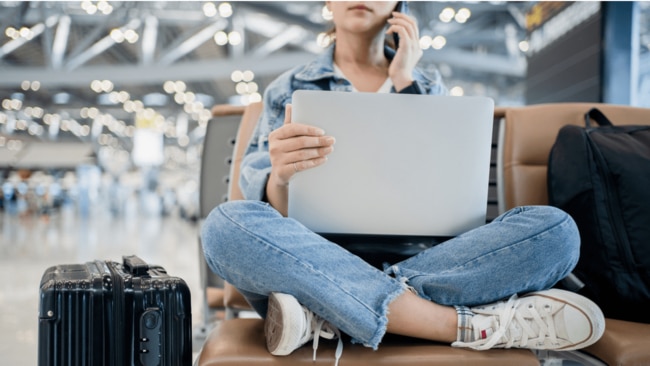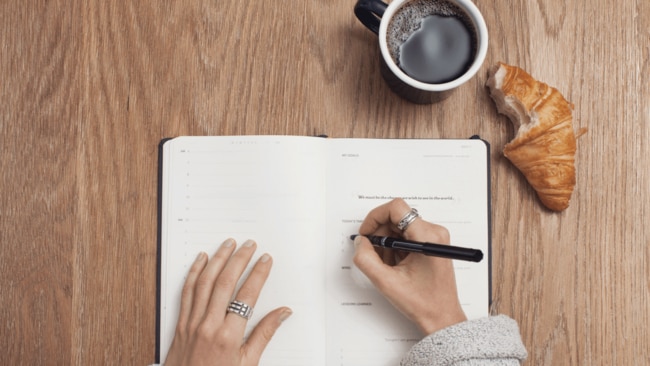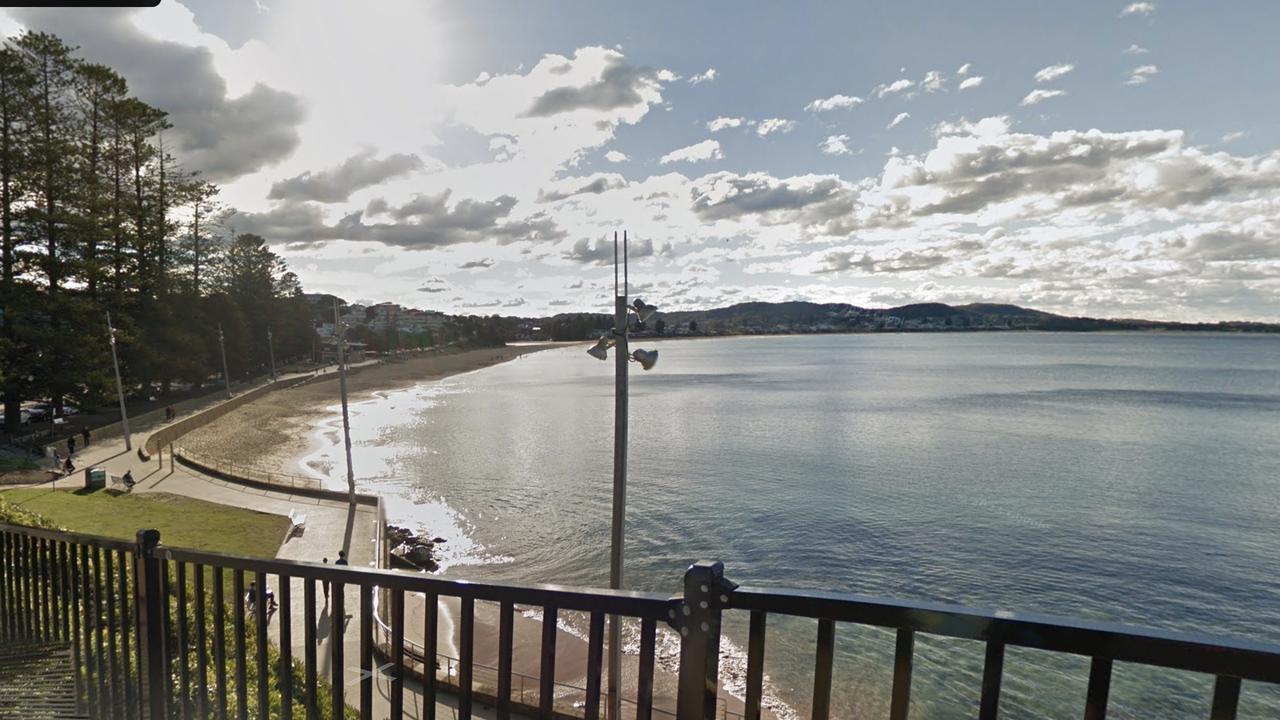11 ways to disconnect from work when you're on holiday
Forget your inbox, it isn't going anywhere

Lifestyle
Don't miss out on the headlines from Lifestyle. Followed categories will be added to My News.
The ‘always-on’ culture has harmful side effects, so here's how to step away from your emails and make the most out of your well-earned time off.
You need a break, you really do. Because summer holidays don’t just feel good, they do good. But don’t just take our word for it. Research from the University of Helsinki found that (for middle-aged male executives at least) taking fewer than three weeks off each year to switch off and kick back is a bigger health risk than a bad diet or poor exercise. Yes, really.
Other studies suggest that the rest, relaxation and recuperation that results from activating your “out of office” (literally) can boost your subsequent productivity by 40 per cent, and shrink the likelihood of calling in sick by 28 per cent.
And yet, we are astonishingly bad at switching off when we jet off. So bad, in fact, that it takes us eight days to truly settle into a holiday, according to research from boffins at the University of Tampere, Finland. Why? The study’s authors cited “Increasingly permeable boundaries between work and home... long working hours... and prolonged physiological activation as a result of preoccupation with work”, all of which means that employees are often unable to recover sufficiently during short respites from work.
All is not lost, however. Here, three experts share their tips for prolonging your holiday zen, reaping the health rewards, and truly stepping away from your emails. Because you’re worth it.

Like what you see? Sign up to our bodyandsoul.com.au newsletter for more stories like this.
BEFORE YOU GO
Don’t pack your work clothes
It goes without saying that you should resist taking work, and work emails, on holiday. But plenty of other accessories can also revive thoughts of dreaded deadlines and/or drudgery.
“When packing, think about clothes and objects you associate with work,” says Dr Sarah Bateup, cognitive behavioural therapist at Oliva, a mental health and wellbeing platform. “It might be particular shirts, or the business section of a newspaper. Don’t let these things travel with you.”
The opposite holds true too. “Look back at photos of holidays you really enjoyed,” suggests Bateup. “Think about taking the clothes you are wearing in them. They’ll have positive associations of being in holiday mode.” One trip to Thailand coming right up!
Set a little white lie on your OOO
Are your holidays often tinged with anxiety about the mountain of emails to which you will return? “Set your ‘out of office’ to tell people that you’re coming back to work a day later than you actually are,” says Bateup. “While you’re on holiday, you’ll know you have a day to focus on clearing your inbox and getting back into work mode, before things start up again.
Plan ‘must dos’ not ‘must nots’
Beating yourself up for worrying about work is no fun. So instead of “must nots” make a list of “must dos”, or in Bateup’s words: “Try compiling a ‘to-do’ list of activities you want to tick off the holiday agenda.” These can be as simple as a daily aperitif outdoors, or a sunrise swim every morning. The most important thing? To establish a profound reason why you want to do it, according to Bateup.
Planning these little hits of joy “helps you start transitioning into holiday mode before you even take off.” Fulfilling them will boost your well-being too: “When we’re engaged in things that are meaningful, our bodies produce natural antidepressants like serotonin, which gives you some resilience to stress,” he adds. Sounds pretty good to us!

WHILE YOU’RE AWAY
Schedule in some ‘work worry’ time
Find it impossible to switch off from work entirely? Allocate a specific window for work worries, suggests Bateup. “Sit down with a cup of coffee and a notebook and write your work worries down. The process of externalising and acknowledging these thoughts will help you to put them into perspective.”
Give yourself no more than 15 minutes each morning, and when your time is up, do a yoga stretch, take a few deep breaths or do some simple exercise to bring you back to the here and now. “Ask yourself what you can see right now, in front of you,” says Bateup. “Drink in the sight of the beach, the mountain, whatever your current view. Then think about the people you’re here with, and what’s important about them.”
Use a weighted eye pillow early in the morning
You’ve finally been granted a week of glorious lie-ins, so why are you still jolting awake at 6 AM? Dr Nerina Ramlakhan, sleep and energy expert and author of Tired But Wired, has a solution for this. “Pack a weighted eye pillow, the kind filled with beads and often lavender-scented. When you wake, don’t look at the clock. Just reach out to your bedside table and place the pillow over your eyes.”
The artificial darkness will help, while the weight encourages deeper sleep, she suggests. Alternatively, “Stop fretting about sleep and enjoy the luxury of lying in bed with a book, instead of jumping in response to your alarm.”

Invest in glossy mags
Your highbrow friends may laugh at your trashy reading material, but “regularly reading glossy magazines on holiday can help,” says Bateup. “Over time, our brains begin to recognise them as a signal it’s time to switch off.”
Other reading material, of course, can serve the same purpose, as can other props – perhaps a specific food or drink you habitually enjoy on holidays – along as they are completely removed from your work life.
Don’t snooze by the pool
It sounds like delicious relaxation, but lounging poolside may not be the best medicine for burnout. According to a study published last year in the Annual Review of Organisational Psychology and Organisational Behavior, physical exercise may be the best method of “unwinding and recovering from everyday work”.
Physical activity stimulates physiological and psychological processes, which promote your long-term health and well-being. It also boosts mood in the short term, and, says Ramlakhan: “It’s often absorbing. Say you’re learning how to sail – there’s no time to think about work. You’re focused entirely on that new skill, that moment and not capsizing!”

Engage in ‘mastery experiences’
Not the sporty type? Try a “mastery activity” while you’re away. “Simply put, that’s anything in which you have an opportunity to do something really well, and get feedback that you’re doing a good job,” says Alex Soojung-Kim Pang, author of Rest: Why You Get More Done When You Work Less. “Think lots of creative activities, like writing, video games and puzzles.”
The reason it works? A 2021 study published in the journal Frontiers linked holiday mastery experiences with increased creativity, suggesting they “may replenish employees’ emotional and cognitive resources”.
Why? “The ability to immerse yourself in something completely different [to your day-to-day] gives you a bigger mental break from work,” says Soojung-Kim Pang. “It’s hard to think about that tough client or complex spreadsheet when you’re playing chess, and that’s a good thing.” So pack a travel games set, or book a cookery course.

Use a jungle (or forest) gym
The Japanese practice of forest bathing, taking in the atmosphere of woodland with all of your senses, has been proven to decrease the stress hormone cortisol, and lower blood pressure. But if you are too wound up from work to stop and hug a tree, we hear you.
“Use nature as your gym instead,” suggests Ramlakhan. “Can you jump over that tree trunk, or swing from that branch? You’ll still be engaging your senses, especially if you take your shoes off.”
Speak to strangers
It’s a no-brainer that spending time with family and friends makes us feel good. But in 2014, researchers discovered that interacting with “weak ties” – near-strangers – had an unexpectedly positive effect on wellbeing, too.
Holidays in a new atmosphere, among new people, are the ideal time in which to do this. So even if you’re tempted to hide away behind a book to recharge your batteries, “consider taking a brief group tour,” suggests Jaime Kurtz, professor of psychology at James Madison University and author of The Happy Traveler: Unpacking the Secrets to Better Vacations.
“I personally love food tours! Or sit at the bar to eat dinner, where it’s easier to strike up conversations. Or ask someone for directions, and casually tell them how much you love their city.” Simple but effective.

AFTER YOU RETURN
Avoid social overload
Yes, it’s tempting to share your holiday snaps with the neighbours, or prolong the carnival spirit with post-holiday parties and plans. But take heed, says Kurtz. “Research shows that the stress-relieving properties of a holiday can be wiped out if you come home and immediately feel overwhelmed.”
In 2011, a team of researchers set out to explore the power of holidays to “prevent and reduce chronic strain reactions to job stress”, and answer a crucial question: how can we stop these benefits fading away when we return to our desks?
More than a hundred German teachers completed questionnaires. Immediately after a fortnight’s holiday, their emotional exhaustion was down, their engagement in work up. After a fortnight, however, those who were using their leisure time simply to relax had held on to more of these benefits. So clear your post-holiday diary, aaaaaaaand... relax.
More Coverage
Originally published as 11 ways to disconnect from work when you're on holiday




